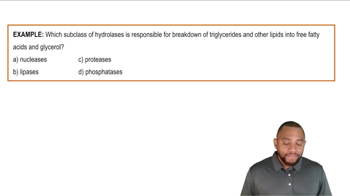Textbook Question
Answer questions (a)–(e) concerning the following reaction:
d. What is the product for the reaction as written?
1394
views
 Verified step by step guidance
Verified step by step guidance Verified video answer for a similar problem:
Verified video answer for a similar problem:



 :39m
:39mMaster Common Naming Concept 1 with a bite sized video explanation from Jules
Start learning